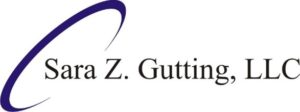Consulting
For consulting related inquiries and pricing, please contact me
County Jail Consulting
Jails are different from prisons. One of the biggest differences is that inmates spend a much shorter time in jail. This affects how we work with these students in order to make level gains and reach student goals. From understanding how to get buy-in from key figures to making sure that the systems you put in place make the least amount of work for correction officers, I have figured it out so you don’t have to. My 28 years of experience in the county jail HSE program, which I started, have given me the background to assist you in not only implementing jail programs but for them to be successful. Let me help you design the programs that work best for your jail and the Adult Education Program.
County Jail High School Equivalency (HSE) Program
Understanding the workings and operations of local jails is essential in starting any program, but most importantly in a jail setting. Knowing when to enroll students based on their case situations is key to having a successful program. It’s important that teachers develop an effective network within the jail facility, including correction officers, in order to efficiently communicate and achieve positive results. From getting people to the table, to funding options, to curriculum and classroom management, I can help you create a successful and sustainable program.
County Jail Mentoring Program
Community Based Programming
Assessing Program and Classroom Data (NRS Table 4 and 4b) and Addressing Weaknesses
